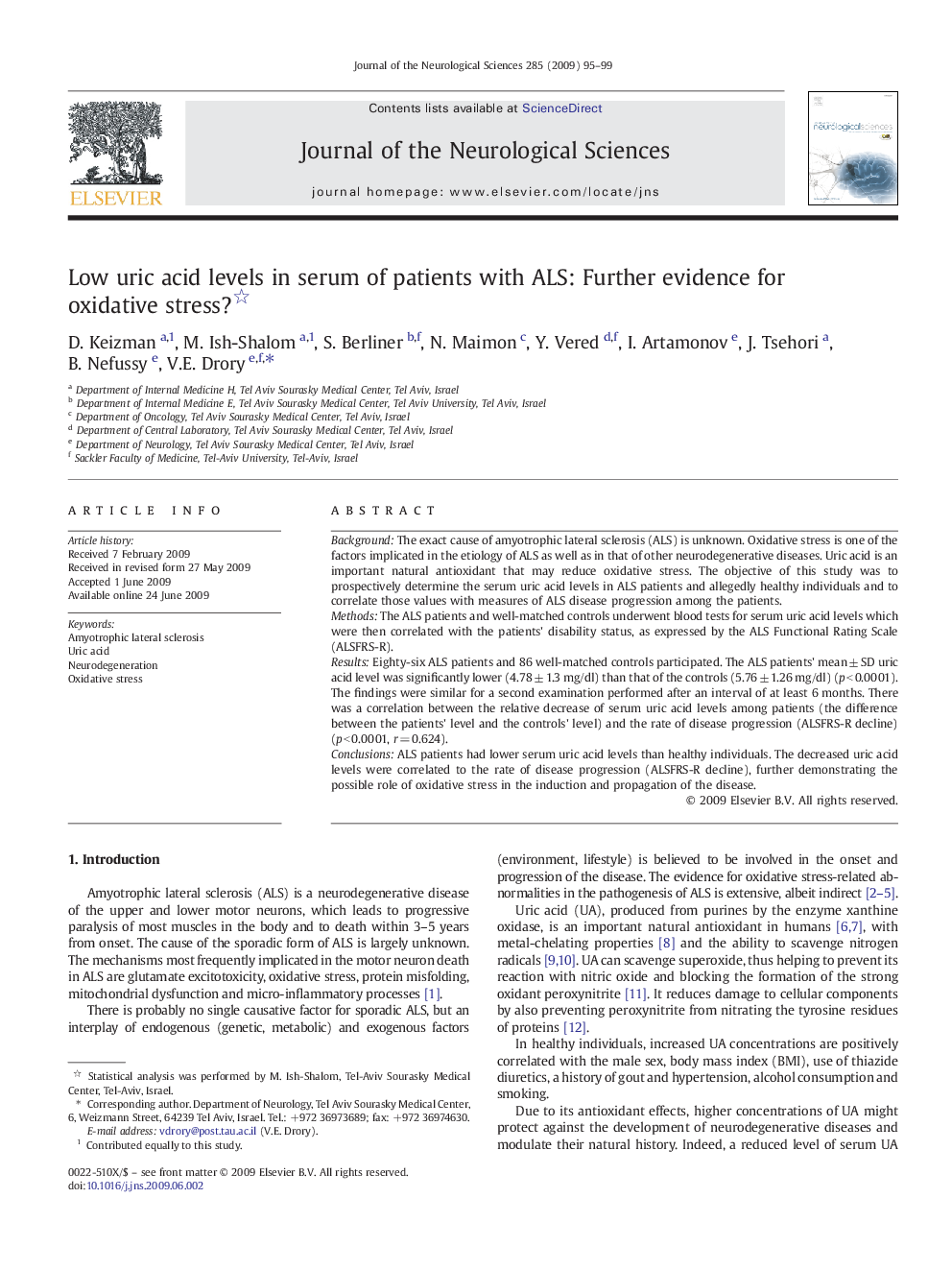| Article ID | Journal | Published Year | Pages | File Type |
|---|---|---|---|---|
| 1915029 | Journal of the Neurological Sciences | 2009 | 5 Pages |
BackgroundThe exact cause of amyotrophic lateral sclerosis (ALS) is unknown. Oxidative stress is one of the factors implicated in the etiology of ALS as well as in that of other neurodegenerative diseases. Uric acid is an important natural antioxidant that may reduce oxidative stress. The objective of this study was to prospectively determine the serum uric acid levels in ALS patients and allegedly healthy individuals and to correlate those values with measures of ALS disease progression among the patients.MethodsThe ALS patients and well-matched controls underwent blood tests for serum uric acid levels which were then correlated with the patients' disability status, as expressed by the ALS Functional Rating Scale (ALSFRS-R).ResultsEighty-six ALS patients and 86 well-matched controls participated. The ALS patients' mean ± SD uric acid level was significantly lower (4.78 ± 1.3 mg/dl) than that of the controls (5.76 ± 1.26 mg/dl) (p < 0.0001). The findings were similar for a second examination performed after an interval of at least 6 months. There was a correlation between the relative decrease of serum uric acid levels among patients (the difference between the patients' level and the controls' level) and the rate of disease progression (ALSFRS-R decline) (p < 0.0001, r = 0.624).ConclusionsALS patients had lower serum uric acid levels than healthy individuals. The decreased uric acid levels were correlated to the rate of disease progression (ALSFRS-R decline), further demonstrating the possible role of oxidative stress in the induction and propagation of the disease.
